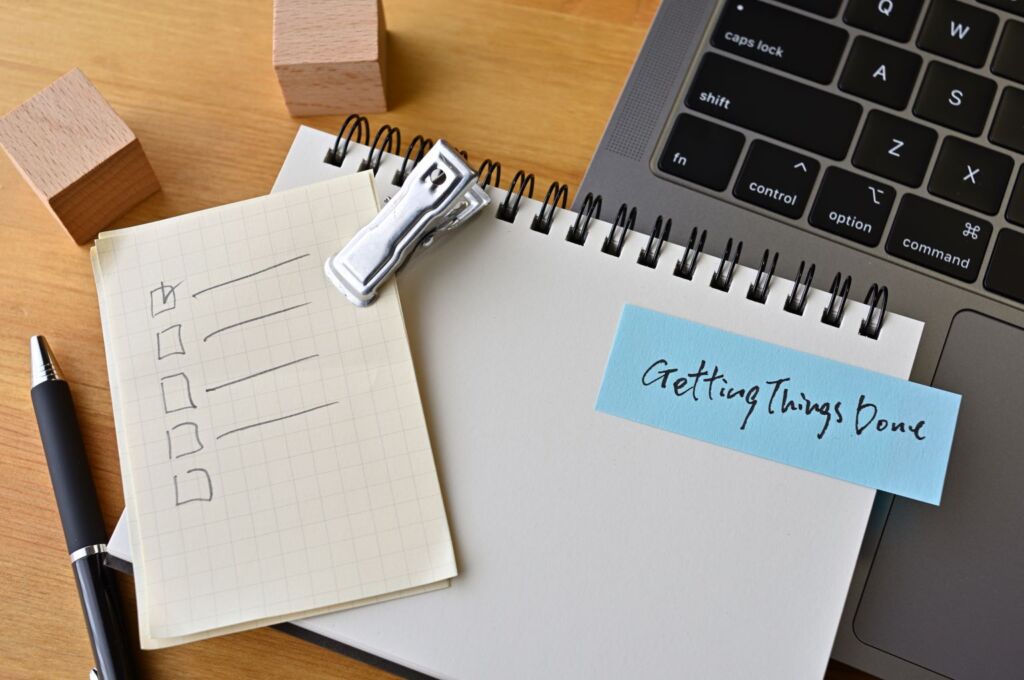Daily Schedule for Success in a Bar Exam Prep Course

Daily Schedule for Success in a Bar Exam Prep Course
A well-planned daily schedule for success in a bar exam prep course isn’t just helpful—it’s essential. Whether you’re fresh out of law school or returning to the legal field, organizing your day with purpose and discipline is the key to mastering bar exam content and walking into the exam room with confidence.
At LEEWS (Law Essay Exam Writing System), we believe that structured preparation beats passive studying. The bar exam is more than a test—it’s a mental marathon, and how you train for it makes all the difference.
This guide lays out an ideal daily routine designed to help you maximize productivity, reduce burnout, and build the skills you need to pass with flying colors.
Why You Need a Structured Daily Routine During Your Bar Exam Prep Course
One of the most underestimated components of any bar exam prep course is time management. With the amount of material you need to absorb—MBE subjects, essay writing skills, performance tests, and more—an organized approach is vital.
Many students get overwhelmed simply because they don’t know what to do each day. They bounce between topics, cram randomly, or over-focus on subjects they already understand. This leads to anxiety, gaps in knowledge, and poor exam performance.
A clear and consistent daily schedule can:
- Ensure full subject coverage
- Promote consistent review and retention
- Improve time efficiency
- Reduce stress and decision fatigue
- Increase your confidence as the exam nears
Whether you’re using a traditional prep course or a specialized method like LEEWS, time discipline is your strongest weapon.
Sample Daily Bar Exam Prep Schedule: The LEEWS-Inspired Approach
Before diving into the hour-by-hour breakdown, remember that this is a model. Your actual routine may vary depending on whether you’re studying full-time or balancing prep with work or family obligations.
That said, consistency is more important than perfection. Use this as a template to build your ideal day.
7:00 AM – 8:00 AM: Wake Up and Morning Ritual
Success starts with how you start your day. Avoid immediately grabbing your phone. Instead, build a routine that clears your mind and prepares you mentally.
- Quick workout or stretching (15–30 minutes)
- Light breakfast
- Short meditation or breathing exercise
- Write down your goals for the day
Maintaining healthy habits during bar exam prep prevents burnout and keeps your cognitive skills sharp.
8:00 AM – 9:30 AM: Core Subject Study Session
This is your first focused session of the day, so choose a high-priority MBE subject such as:
- Torts
- Contracts
- Constitutional Law
- Civil Procedure
Spend this time reviewing outlines, going through concept summaries, and actively learning the material. Avoid passive reading—engage through flashcards, writing short outlines, or explaining concepts aloud.
Tip: Rotate subjects daily to ensure full coverage within the week.
9:30 AM – 9:45 AM: Short Break
Stand up. Stretch. Refill your water. Give your brain a moment to reset before jumping back in.
9:45 AM – 11:15 AM: Essay Writing Practice with the LEEWS Method
Here’s where LEEWS shines. Dedicate this time to law essay exam writing using the LEEWS system:
- Break down a sample fact pattern
- Identify all relevant issues
- Use our issue-spotting and analysis structure
- Write or outline a response
This daily writing habit will sharpen your analytical thinking and improve your ability to spot issues under pressure, which is critical for passing the written portion of the bar exam.
Tip: Even if you don’t write the full essay, always complete a detailed outline using the LEEWS method.
11:15 AM – 12:30 PM: MBE Practice Questions
Tackle 30–50 multiple choice questions in this session, preferably on the same subject you reviewed earlier.
Use trusted MBE question banks and practice under timed conditions. The focus here is:
- Understanding the logic behind each answer
- Spotting patterns in how questions are asked
- Avoiding traps and distractors
Review every answer choice, even the ones you got right. Deep learning happens during the review.
12:30 PM – 1:30 PM: Lunch and Rest
Step away from your desk completely. Eat a nutritious meal. Avoid scrolling through social media or watching Netflix—take a walk, sit outside, or nap if needed.
Your brain needs downtime to consolidate what you’ve learned.
Afternoon Sessions: Strengthen Weak Areas and Build Stamina
Your afternoon sessions are about reinforcement and exposure to new material.
1:30 PM – 3:00 PM: Targeted Review of Weak Subjects
Use this session to dive into areas you’ve struggled with historically. That could include:
- Real Property
- Evidence
- Criminal Law
Use this time for:
- Re-watching lecture segments
- Rewriting rule statements
- Reviewing outlines or creating visual charts
A good bar exam prep course includes diagnostic feedback. Use this data to refine your focus areas.
3:00 PM – 3:15 PM: Short Break
Get a snack, take a few deep breaths, and reset.
3:15 PM – 4:30 PM: Performance Test Practice
The Performance Test (PT) often feels intimidating because it’s so different from the MBE or essays. That’s why regular exposure is vital.
Dedicate time each week—at least 2-3 times—to practice PTs. Follow this process:
- Read the task memo
- Skim through the file and library
- Identify rules and relevant facts
- Outline your answer
- Write (or partially write) the response
While LEEWS focuses heavily on essay writing skills, many of the same issue-spotting and analysis techniques apply here.
Tip: Practice under timed conditions to simulate real pressure.
4:30 PM – 5:30 PM: Review + Self-Assessment
Wrap up your study day with reflective review:
- Go over any errors from MBE or PT practice
- Review missed rule statements
- Jot down what worked well today and what didn’t
- Update your progress tracker
This review time is crucial. It ensures you’re not just “doing work” but actually retaining and improving.
5:30 PM – 7:00 PM: Dinner and Free Time
Disconnect completely. Socialize, rest, watch a show, or enjoy a hobby. This downtime is necessary to prevent burnout over the course of a multi-week prep plan.
7:00 PM – 8:00 PM: Light Review or Flashcards
End the day on a low-stress note:
- Review flashcards or bar outlines
- Watch a short review video
- Re-write your personal attack outlines
This hour should be light and focused more on retention than new learning. If you’re feeling wiped out, skip this session and prioritize rest.
Weekly Planning for Long-Term Bar Exam Success
While daily structure is important, stepping back to look at your week as a whole helps prevent gaps and reinforces your progress.
Here’s what your weekly planning checklist might include:
- Rotate all 7 core MBE subjects
- Practice 4–5 essays using the LEEWS method
- Complete 250–350 MBE questions
- Review 1–2 performance tests
- Revisit personal outlines
- Get 1 full rest day
Many students mistakenly think more hours equal more success. In reality, consistent quality effort, spaced repetition, and smart recovery are far more effective than long, unfocused cram sessions.
Customizing Your Bar Exam Study Schedule Based on Your Life
Not everyone can commit to 8–10 hours a day. If you’re working, parenting, or have other obligations, adapt the principles of this schedule to your life:
- Shorter sessions with higher intensity
- Study in 90-minute focused sprints
- Use flashcards or review materials during commutes
- Extend the study timeline by starting earlier
The LEEWS method works regardless of your time constraints—it’s about how you approach the exam, not how many hours you grind.
Top Tips for Maximizing a Bar Exam Prep Course
Whether you’re using a traditional bar review provider or a specialized program like LEEWS, these strategies will help you stay on track:
1. Make Weekly Study Plans
Don’t just “wing it” every morning. Every Sunday, map out the subjects, question sets, and essay drills for the week ahead.
2. Emphasize Writing and Analysis
Many students fall into the trap of only doing multiple choice questions. But in most jurisdictions, the essay portion makes up half of your score. Writing practice is crucial.
3. Use Active Learning
Don’t passively read outlines or listen to lectures on 2x speed. Take notes, create diagrams, teach concepts aloud, and apply what you learn through practice.
4. Review Frequently
The bar exam is a memory test. Without regular review, information fades. Revisit old outlines, past essays, and MBE errors weekly.
5. Don’t Skip Recovery
Sleep, nutrition, breaks, and mental health care are all non-negotiable. Burnout leads to poor focus and weak recall, both of which can derail your performance.
Why LEEWS Is the Best Bar Exam Prep Course for Essay Success
While many bar prep courses promise results, LEEWS (Law Essay Exam Writing System) delivers a proven, practical approach that teaches you to think and write like a lawyer.
LEEWS trains you to:
- Break down fact patterns with precision
- Spot multiple issues across legal topics
- Write concise, clear, and analytical essays
- Avoid “brain dump” responses and scattered thinking
- Practice using a consistent method you can rely on under pressure
Thousands of students across the country have transformed their essay-writing skills and passed the bar thanks to LEEWS.
Ready to Build Your Winning Daily Routine?
There’s no magic bullet for bar exam success—but there is a system that works. Your routine doesn’t need to be perfect. It needs to be intentional, disciplined, and centered around smart preparation techniques.
A daily schedule like the one above, combined with the power of LEEWS, can give you the structure and strategy you need to succeed.
Take the First Step—Enroll in LEEWS Today
If you’re serious about passing the bar, especially the written section, don’t rely on luck or outdated techniques.
Join LEEWS and learn the essay strategy that thousands of successful bar takers have used to elevate their writing, sharpen their legal thinking, and walk into the exam with confidence.
Enroll now and master the art of law essay exams with LEEWS.







